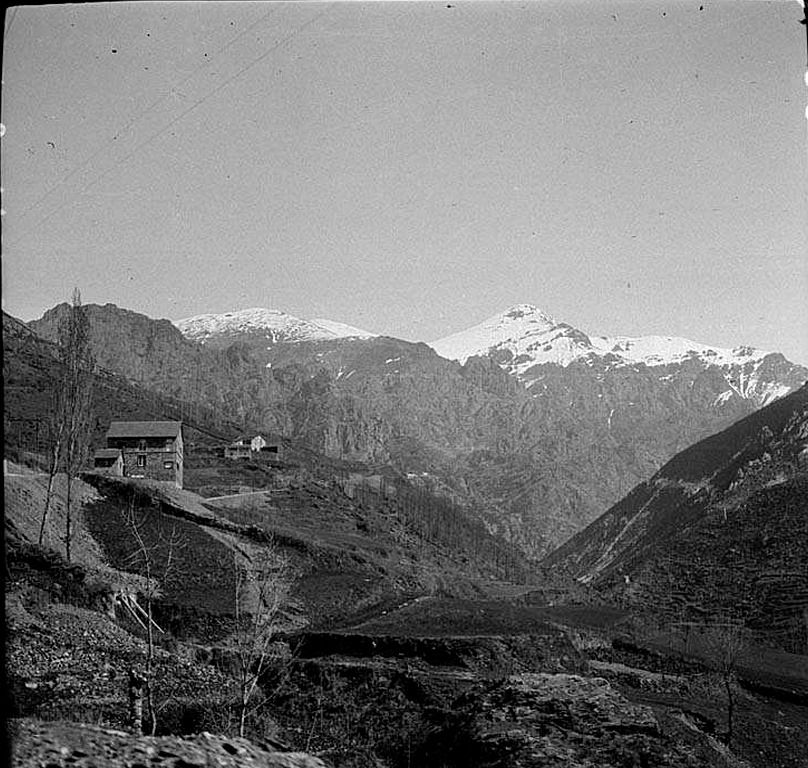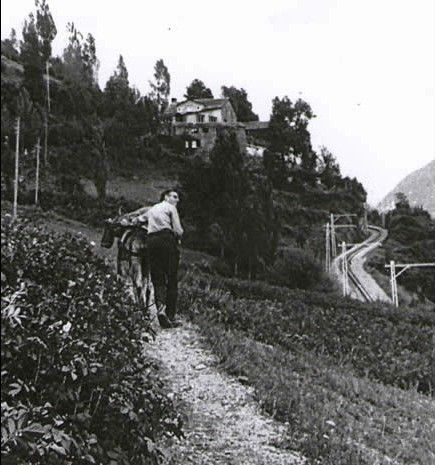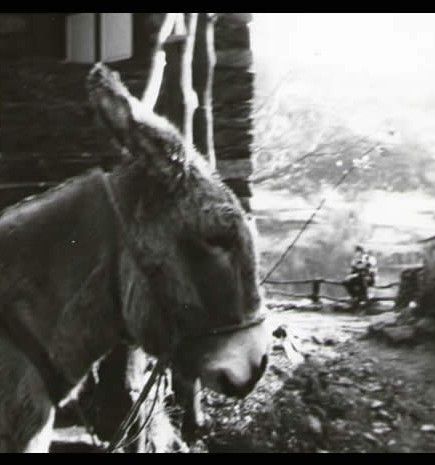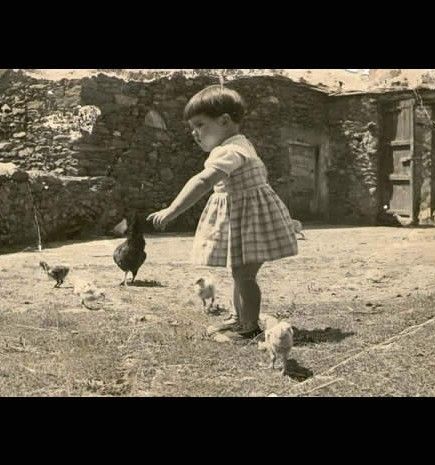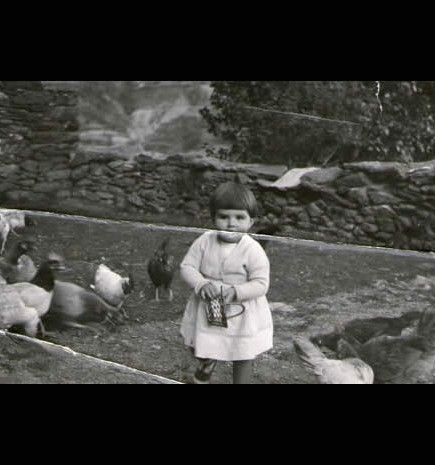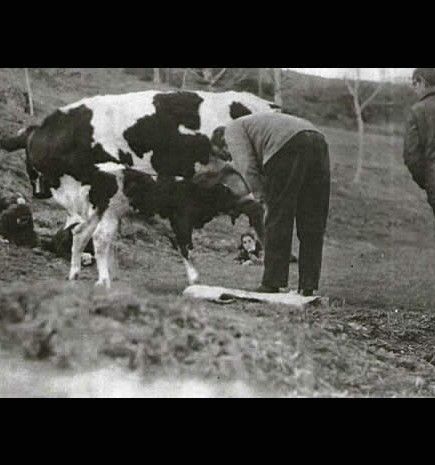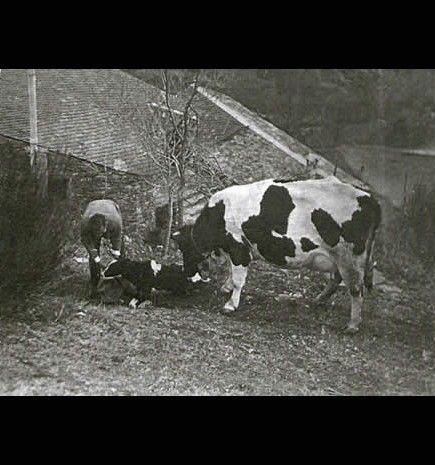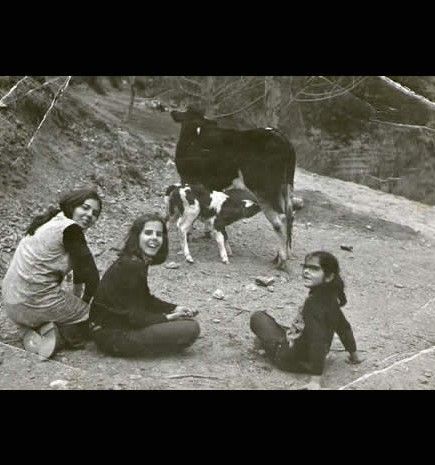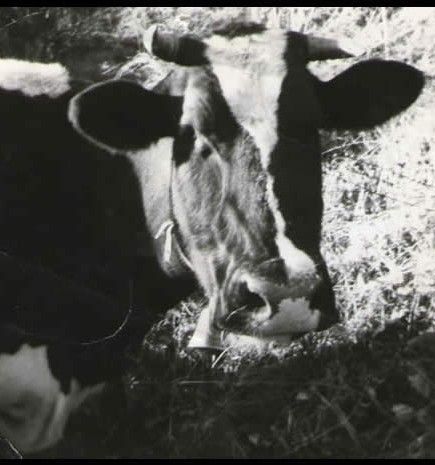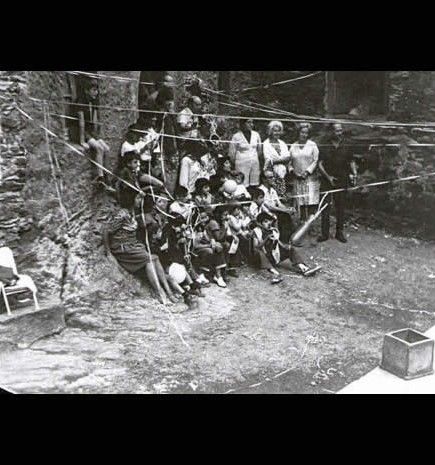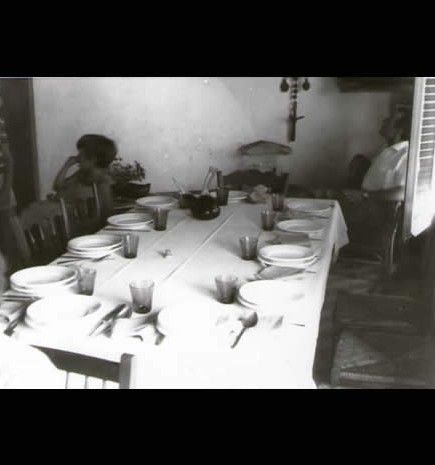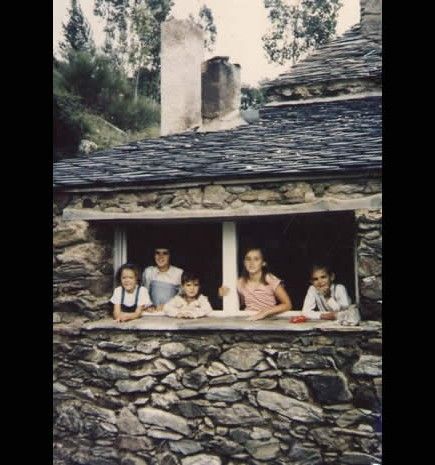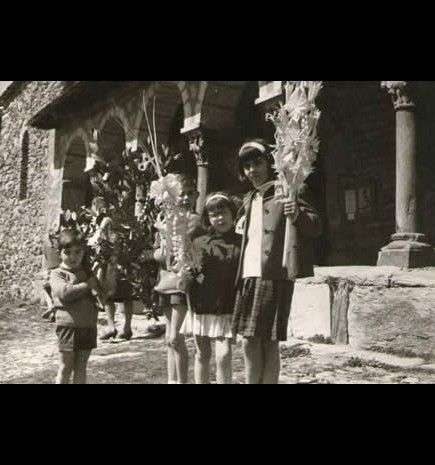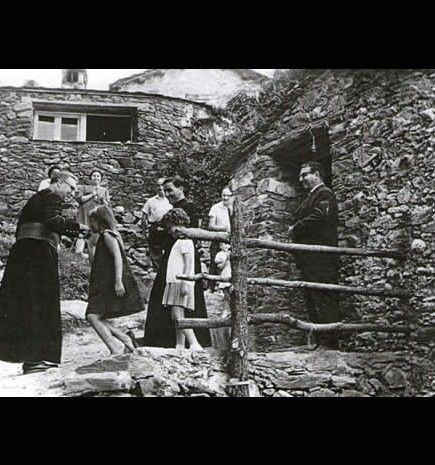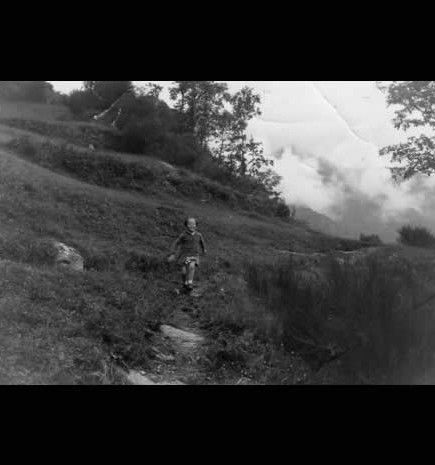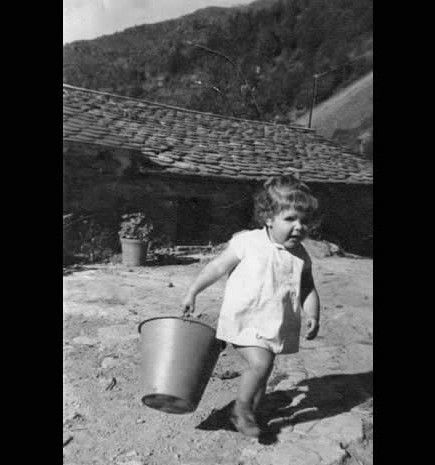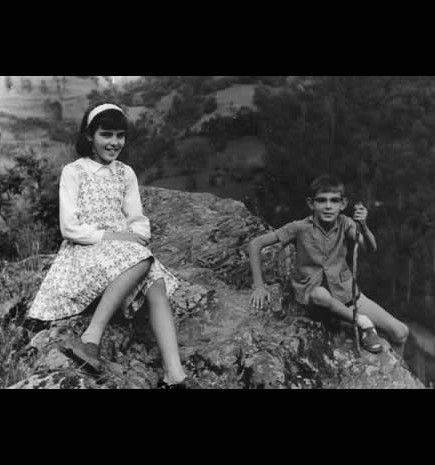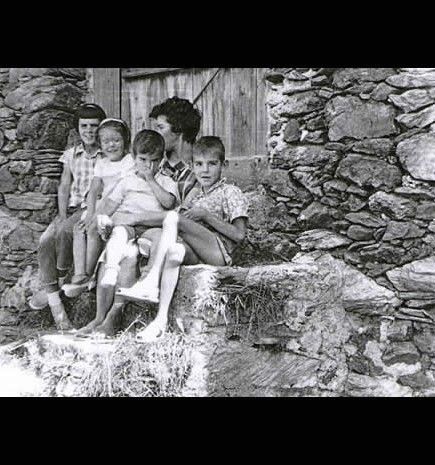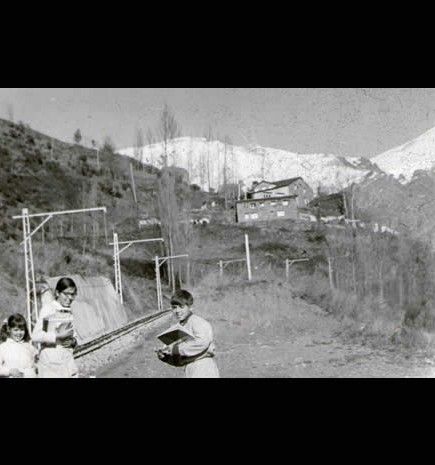-In the beginning, when the father was very young, he would go down to the village on foot and carry a 30 liter milk pail on his back. He went door to door to sell the milk of his cows.
-The father milked the cows twice a day, in the morning and in the evening and helped them when they had to give birth. It was a very exciting moment, which some customers had been able to witness. The calf got up on its own and, little by little, approached its mother, guided by the smell, by the contact with her skin and when it found the targets, it immediately began to suckle.
-The mother was often angry with the cows, they would eat the soap from her clothes, they would rub the clean clothes that had just been spread out with their tails...
-Our mother washed by hand in the laundry room at home, all seasons of the year, and in the winter everything she hung would freeze, the clothes would harden as if they were wood.
-Parents loved flowers. Father would go for a walk and pick flowers from the meadows and put them in bouquets on the restaurant tables. Mother took great care of the flowers in the garden. He had beautiful hydrangeas, dahlias, chrysanthemums, daisies, lilies, roses... and in winter he brought the geraniums into the house to protect them from the cold.
-In the morning, at breakfast time, customers would drink the freshly milked milk and many still remember the cream she made, and how good it was.
-Breakfast consisted of sweet and savory, i.e. toast with butter and jam and bread with tomato, but always accompanied by the baker's cake that we went to get from the village oven every morning. The children's snack was almost always bread with chocolate.
-In addition to cows, we had pigs, rabbits and chickens. Once, despite having the hen house well closed, the eagles got too close, managed to get in and ate all the chickens.
-We brothers had to watch the cows in groups and we didn't put too much interest in them. More than once they had escaped and the angry farmers called us, because our cows had entered their orchards. --The cows were also very quiet and often had the habit of stopping in the middle of the train tracks, to eat grass, even if the rack went up. The drivers had to stop the train, stop, get off and get them off the track, somewhat forcefully.
-The cows were very pampered and loved, both by the father and by the customers. They often approached the dining room window and the customers, while they were eating, gave them vegetables and fruit.
-Customers went to fetch water from the fountain, with a pitcher and put the wine glass in the fountain, so that the wine was very cool.
-When it was time for lunch and dinner, the father would go out with the whistle and ring it to warn everyone that the food was ready and for the customers to enter. They used to be outside, sitting in the entrance, since the staircase had become another common place for gatherings.
-To name the tables we were governed by the identifying element of each one. For example: the table in the middle, the one under the dishes, the one in front of the window, the one in front of the fireplace, the one behind the door, the one under the stairs, the Virgin Mary...
-We also knew the customers by their first name Mr. Perera, Messrs. Catot, Messrs. Nuri, Mr. Casilari, Messrs. Caparrós, Messrs. Beneyto... Or others by profession such as Messrs. Tailor, who had a clothes shop and even today, with some of them, we have continued the tradition and we also name our children in the same way.
-To get home from the village, there was only one narrow road and the father had to carry the groceries: big boxes of fruit, drinks, all kinds of food, with a donkey named Platera. Thanks to dear Platera, we were able to manage the house for years. It was a good and very strong animal, which had even carried on its shoulder, some household appliances and very heavy pieces, also the customer's suitcases and it was normal that some ladies from Barcelona, who arrived in the town for the first time and went with dress and heeled shoes, also climb on the Platera.
-Our father was very religious, he liked to go to mass and visit churches, he was also very restless artistically and he liked to see all kinds of monuments, museums, cities. It took us a while for the children to share their love for the art world. It took a few years for us to learn to love and value, like him, the beauty of so many places.
-The father had his customs and one of them was to walk up to Núria every June 29, the day of his saint. He liked to enjoy this party, dance sardanas, eat porridge...
-What we children have also followed is the tradition of bringing a small chapel, with the figures of the Sagrada Família, to the other houses.
-Since we were friends of the family that lived at the station and there was a lot of trust, sometimes when a customer was late to catch the cremal trainlera, the father would call the head of the station and ask the head, if he could please make the train wait until the customers from home arrived.
-With the arrival of good weather, the children accompanied the father, to take the cows to the top of the mountain. They were there all summer, until we went to look for them again in the fall.
-When the mother went down to town, whether to go shopping or to church or to the hairdresser, she was very well dressed and as the road was in very bad condition, she put on espadrilles, but when she arrived at the entrance to the village, she kept them in a bag and put on her changing shoes to look pretty and elegant.
-The father loved opera and this is indeed a passion he has passed on to some of his children. When he milked the cows he sang them songs, fragments of opera or talked to them, while he stroked them and scratched their heads.
-The father often went to the Liceu, he didn't want to miss any premiere. He had a passion for operas, a passion that his mother did not share very much.
-The Kings always brought us books. Walt Disney story books, Andersen's Tales, Folch i Torres books, Don Quixote... When we were little, I mean, they weren't the most expected and appreciated gifts, but the truth is that the books have always been by our side, we have learned to love them and they have become the travel companions of the whole family.
-Father was a great reader. He read a lot of books, especially poetry and we remember him, from a very young age, also reading the newspaper, El Correo Catalán. I was a subscriber and it arrived every day, with the zip at 12 noon. He spent hours and hours reviewing the newspaper from top to bottom.
-The father was very sociable, sensitive, restless and liked to learn from everyone... He always asked, as he really wanted to know. He was very cheerful and used to tell anecdotes to customers, especially when he served the tables.
-Mother was a woman with a huge heart, sensitive, intelligent, elegant and very patient. He had great empathy for others and knew how to treat people. The kitchen was often the place for many customers to meet, socialize and consult. He knew how to listen, advise, help... and always had a kind word. People loved him very much.


